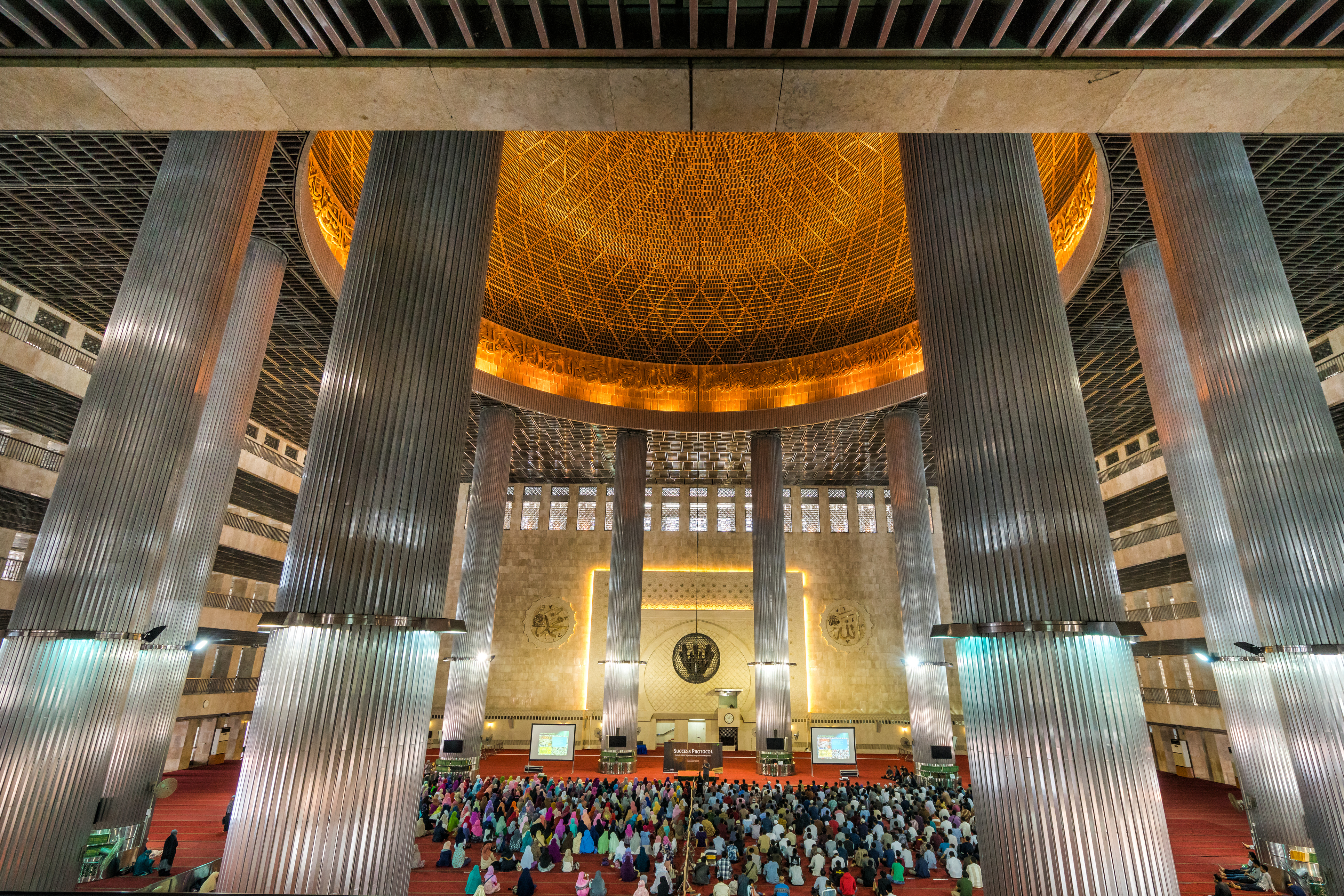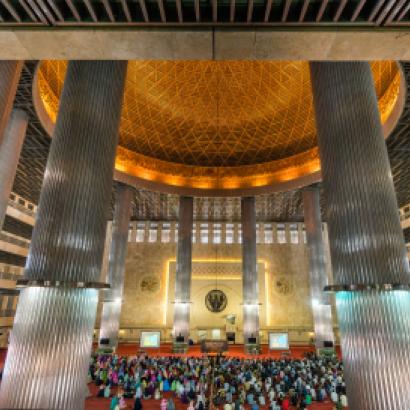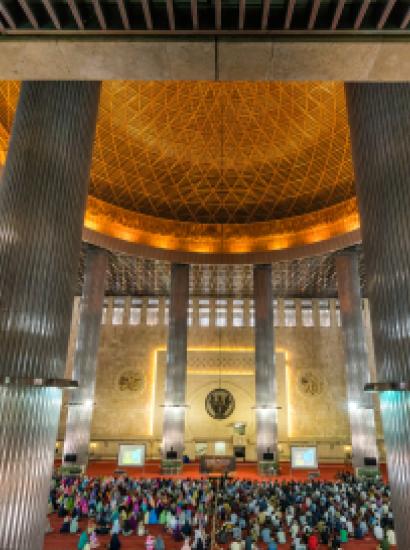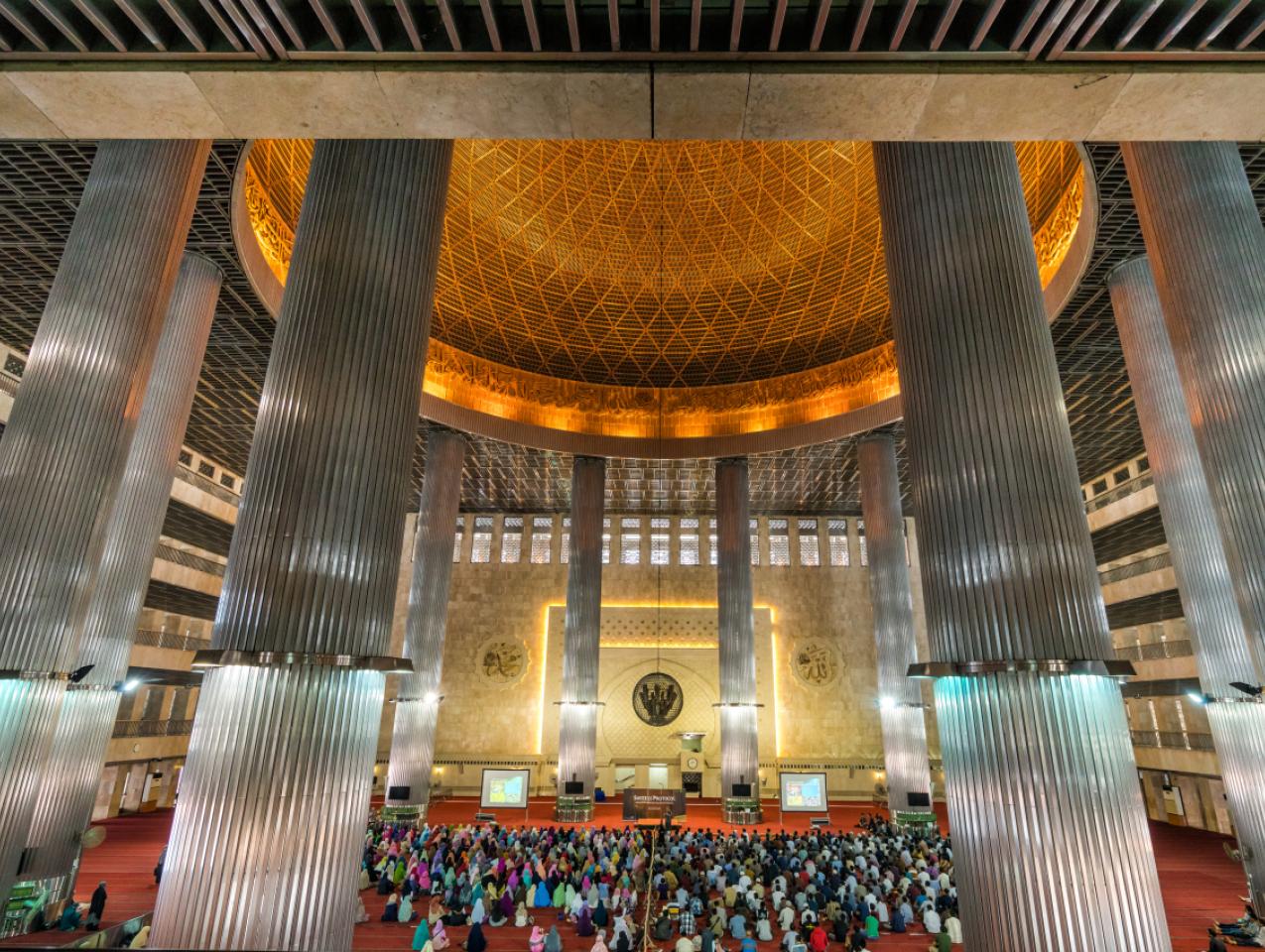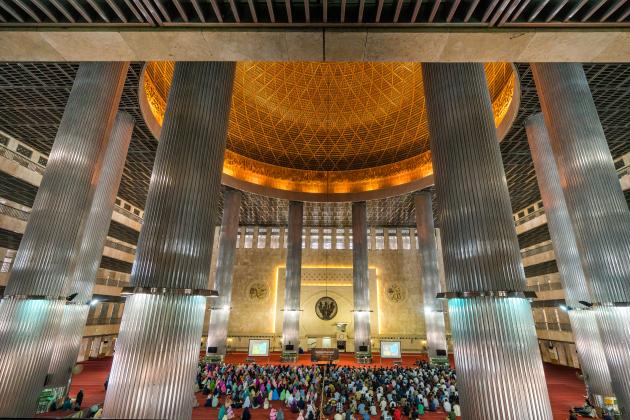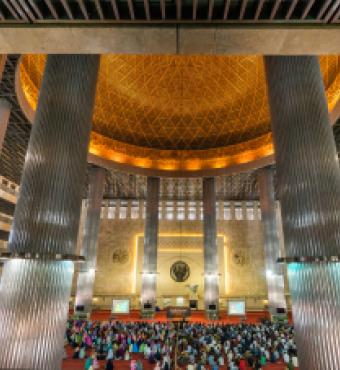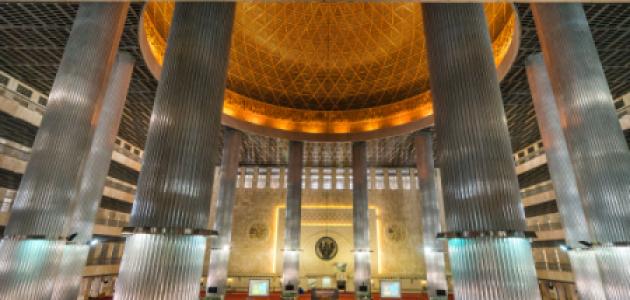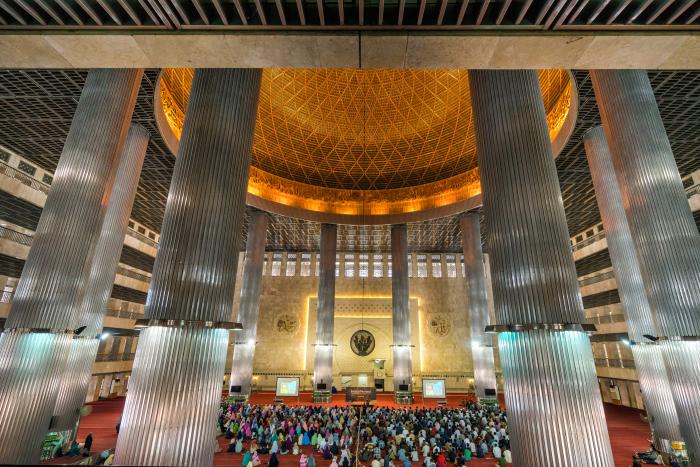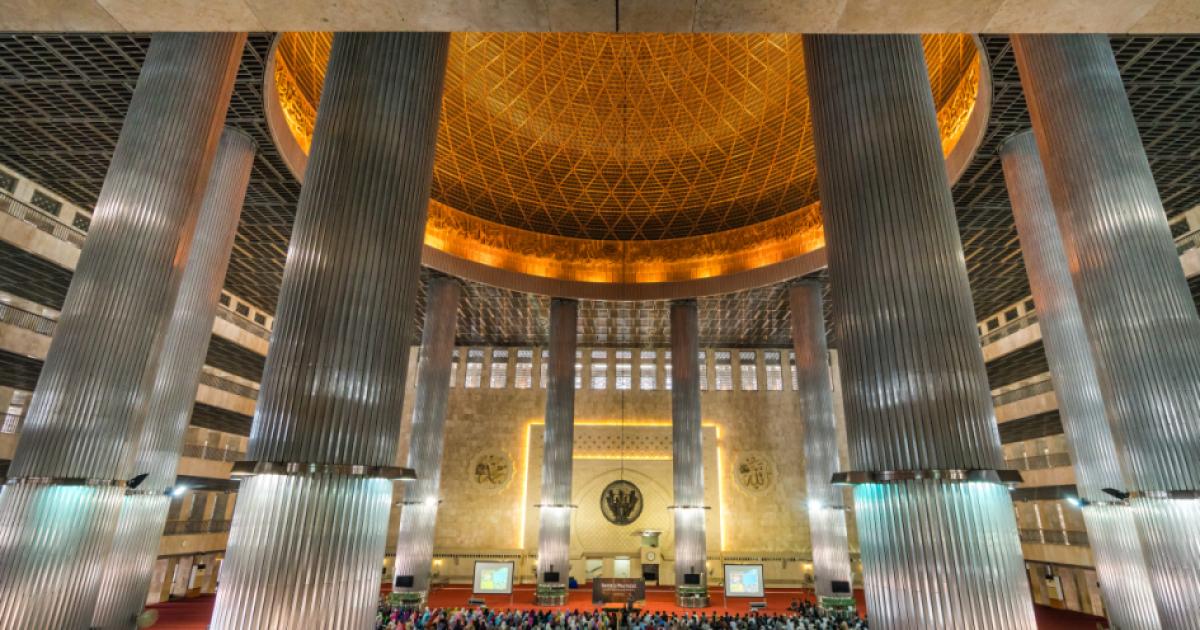The news from Jakarta last April 20 presented a very sad juxtaposition. On the one hand, there was US Vice President Mike Pence, expressing his admiration for Indonesia’s tradition of religious tolerance and moderation and reassuring Indonesians on behalf of the Trump administration, that the new visa restrictions would not apply to Indonesians. At the same time, the Acting Governor (equivalent of Mayor) of Jakarta, Basuki Cahaya Purnama – commonly known as Ahok – was facing a court in that city on the criminal charge of blaspheming Islam. He had questioned the interpretation by some of his opponents that a Koranic verse from Surah al Maidha 51 prohibits Muslims from accepting the leadership of Christians or Jews.
Ahok had just suffered a stinging election defeat for governor, a position he had held since his former boss, Joko Widodo, had become Indonesia’s President. The election for a new governor had been marked by violent protests against Ahok for his alleged blasphemy, but in reality due to his identity as an ethnic Chinese Christian.
But worse was yet to come. The prosecutors, seemingly more inclined to leniency because Ahok was now a defeated candidate, downgraded the charges against him and recommended no prison time. However, the panel of five judges ignored that recommendation and on May 9 sentenced him to two years in prison. In doing so they cited a firebrand cleric, Habib Rizieq, leader of the “Islamic Defenders Front” (FPI), as a Koranic authority. Imprisoned twice for inciting violence, Rizieq has been described as “occupying the fringe of Indonesian society, his followers regarded as thuggish vigilantes with a penchant for extremism and extortion.”
Two days later, three of the five judges received promotions. But not to worry – the spokesperson for the Attorney General’s Office assured the public – these promotions had “nothing to do with Ahok.” The promotion had “been discussed in several stages earlier.”
When I went to Indonesia as ambassador thirty years ago I was deeply impressed by the long tradition of religious tolerance to be found in that country with the largest Muslim population of any nation in the world. Already then, it was apparent that religious extremism was going to be a challenge for the whole world. So, Indonesia’s success was therefore all the more important, including to the U.S.
But the spectacle of some 200,000 people demonstrating last November demanding "kill Ahok for insulting Islam," was not the Indonesia that I had come to admire. Nor was the much larger demonstration the following month, by some estimates as many as half a million, demanding “Jail Ahok, the law must be fair” after the government had yielded to the demand to put him on trial.
Nor was that the Indonesia of the two leading spokesmen for Islam in the country when I was there.
One was Nurcholish Majid, a man who led the Indonesian Muslim Students Organization (HMI), in the 1960’s – braving left-wing demonstrators who were demanding “Crush HMI, Crush Nurcholish” – a man who enjoyed almost universal respect and who argued forcefully that Islamic values were fully compatible with liberal democracy and tolerance; arguing that the most essential tenet of Islam was respect and concern for other humans beings as God’s creatures, a common tenet with many other religions.
The second was Abdurrahman Wahid, popularly known as Gus Dur, who became Indonesia’s first democratically-elected president after the fall of Suharto in 1999. During the 1980’s and 1990’s, he led Nahdlatul Ulama, the largest Muslim organization in Indonesia (and perhaps in the world) with an estimated 40 million members. He had both an extraordinary breadth of knowledge – not only of Islamic religious and philosophical texts, but of the Western tradition as well. He said that his view of religion was influenced profoundly by reading Aristotle’s Nichomachean Ethics as a young man. Although his presidency sadly ended unsuccessfully, he remained until his death, the bravest and most outspoken defender of Indonesia’s minorities.
Nurcholish died in 2005 and Wahid in 2009, and there does not yet seem to be anyone of similar stature to take the place of either as defenders of religious freedom of traditional Indonesian Islam. Both would be dismayed by this spectacle of opposition to a political candidate based on his ethnicity and religion, or charges of blasphemy over a disputed phrase in the Koran. Indeed, in 2007, Wahid himself took issue with those who interpreted that same Koranic phrase as forbidding Muslims from accepting Christian leaders.
There are those who argue against overreacting to the events of the past 12 months or to see this as a sign of the death of tolerant Islam Indonesia. One unidentified “Indonesian political expert” was quoted recently that “These issues are all at the local level - limited to more conservative regions - and not the national level. It's all about local dynamics.” Some of my Indonesian friends, and some academic experts I have spoken with say that the Ahok case is unusual – as is Ahok himself. After all, it took the US more than a century and a half before a Catholic could be elected president, and Ahok was a Christian and an ethnic Chinese running for governor of a province of 10 million as well as Indonesia’s capital. Even some of Ahok’s supporters say that he gave off an appearance of arrogance, and should have recognized that it was one thing for Wahid to debate the meaning of the Koran and quite something else for him to do so. One defender of Anies Baswedan, the man who won the election, says that he “consciously presents himself as a moral champion whose message is unity and social justice” and that may be true. But it does not explain his apparent courting of Rizieq’a support.
However, what is so concerning about this election is not the outcome, nor the personal tragedy of a dedicated public servant going to jail for two years because of a dispute over the Koran. Even worse was the silence of people who should have known better. Some of that silence may have reflected a justifiable fear of confronting a mob. But some of it was the silence of people who were profiting politically.
Both those elements which were at play in this year’s election – fear and opportunism –may be a preview of what might come in the country’s next presidential election in 2019. In his first election, in 2014, the current president, Joko Widodo, managed to survive an underground smear campaign claiming that he was secretly a Christian, as well as the well-known fact that he had appointed Christians to important positions when he himself was Governor of Jakarta. Both were good signs. But this year’s events suggest that the next election could be a risky time for the country.
So do the results of a poll conducted last year by the Ministry of Religious Affairs and the Wahid Foundation which polled more than 1600 high school students participating in an after-school Islamic education program called Rohani Islam. The results are truly shocking: 33 percent of them defined jihad as a holy war against non-Muslims; 78 percent would support turning Indonesia into an Islamic state under a caliphate; more than 60 percent would go on jihad to countries like Syria if they had the chance; 58 percent agree that thieves’ hands should be chopped off and 62 percent would like to see adulterers stoned to death. The Religious Affairs Ministry in Jakarta has admitted that something is wrong with this Islamic educational program. “The activity has been entrusted to trainers without a due process of selection.”
I am not alone in my concern about the trend in Indonesian attitudes toward religion and religious tolerance.
Although he has not said so publicly, according to a reliable report by Jeffrey Goldberg in The Atlantic, President Obama told Malcolm Turnbull, the new prime minister of Australia, in 2015 that "he has watched Indonesia gradually move from a relaxed, syncretistic Islam to a more fundamentalist, unforgiving interpretation; large numbers of Indonesian women, he observed, have now adopted the hijab, the Muslim head covering.”
When asked why this was happening, he told Turnbull it was because the Saudis and other Gulf Arabs have funneled money, and large numbers of imams and teachers, into the country. In the 1990s, the Saudis heavily funded Wahhabi madrassas, seminaries that teach the fundamentalist version of Islam favored by the Saudi ruling family, Obama told Turnbull. Today, Islam in Indonesia is much more Arab in orientation than it was when he lived there, he said.
The tension between the Islam of Saudi Arabia and the traditional Islam of Indonesia goes back almost a hundred years. When King Abdul Aziz ibn Saud took over Medina and Mecca in 1924 and 1926, and cleaned out objects of veneration that he and his followers considered idolatrous, traditionalist Muslims everywhere lamented this desecration of ancient tombs and pilgrimage sites. In Indonesia, a group of ulama from across Java met to discuss how to respond and sent a delegation to Saudi Arabia to beseech Abdul-Aziz’s intervention to stop this desecration, but to no avail. That meeting gave birth directly to a new association of ulama - Nahdlatul Ulama – that grew to become one of the largest mass-based Muslim organizations in the world and which was headed by Abdurrahman Wahid when I was ambassador there.
Indonesia is too important to give up hope for a positive reaction to some of the ugliness that has been on display recently. The fight for traditional Islam in Indonesia has to be led by Indonesians themselves. And one of their strongest weapons in that fight is the “state ideology” of Pancasila, (“Five Principles” - Indonesian state philosophy) which makes Indonesia not a “secular” state, but one in which six different official religions are recognized equally. That principle, in turn, has a strong practical basis because – with four majority Christian provinces and one Hindu province – Indonesia might have difficulty remaining a unified country if Islam were imposed as the state religion. It is not an accident that President Jokowi seems to be turning to Pancasila as his means of countering the extremists.
When Wahid was once asked whether he was not afraid of being attacked by extremists for speaking out, he replied “Let them attack us! Then at least people will hear about the controversy, and can decide whether or not they agree with us. If we remain silent, only the extremists will be heard.”
Fortunately, even though no one today has the stature of a Wahid, there are others who have the courage to speak out, traditionalists like Yahya Cholil Staquf, the general secretary of Nahdlatul Ulama, who said recently:
The various assumptions embedded within Islamic tradition must be viewed within the historical, political and social context of their emergence in the Middle Ages [in the Middle East] and not as absolute injunctions that must dictate Muslims’ behavior in the present … Which ideological opinions are “correct” is not determined solely by reflection and debate. Political elites in Indonesia routinely employ Islam as a weapon to achieve their worldly objectives. . . Any [fundamentalist] view of Islam positing the traditional norms of Islamic jurisprudence as absolute [should] be rejected out of hand as false. . . After allowing [the ultra-conservative Saudi version of Islam] to go unchallenged for so many decades, the West must finally exert decisive pressure upon the Saudis to cease this behavior.
While foreigners need to be cautious about intervening in debates among Indonesians, we should be doing more to curb the toxic influence of Persian Gulf money in Indonesia. And we can support people like Yahya Staquf, not by debating religion, but by agreeing that the ultra-orthodox view of Islam renders Muslims “incapable of living harmoniously and peacefully within the multi-cultural, multi-religious societies of the 21st century.”







